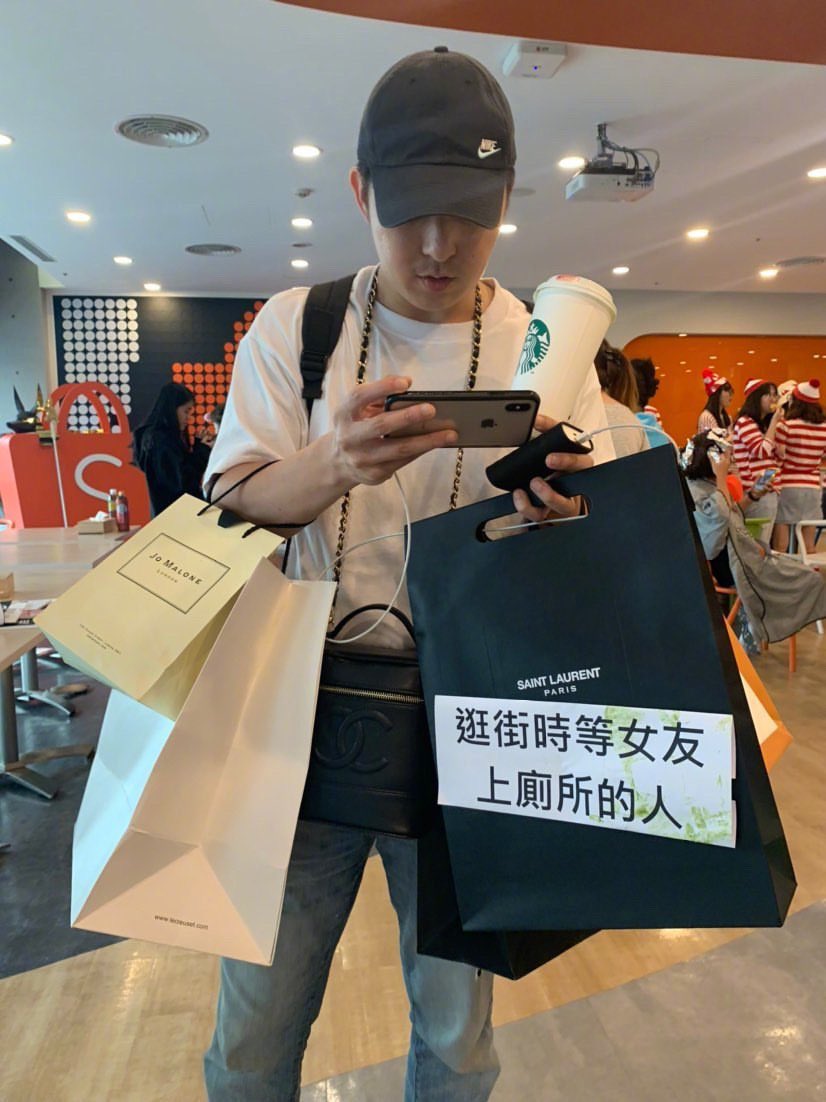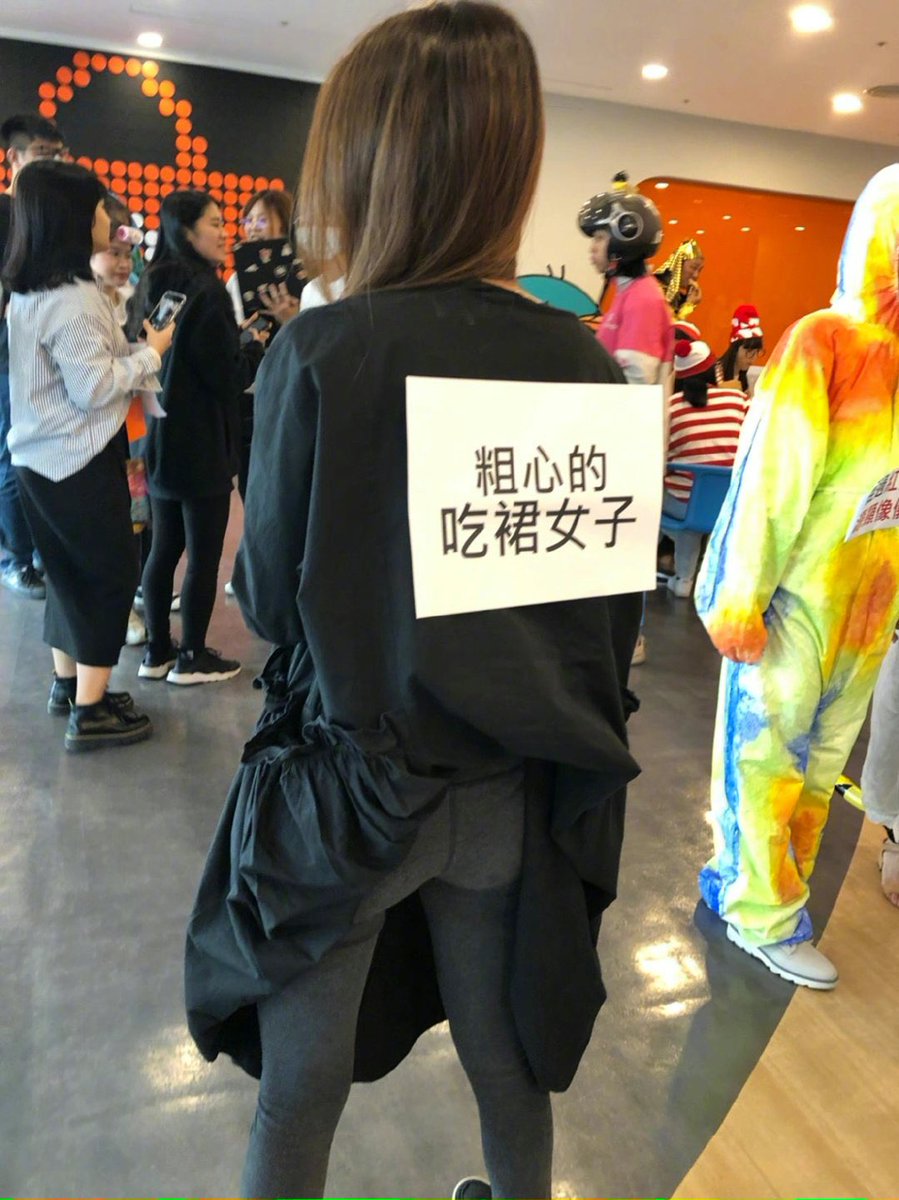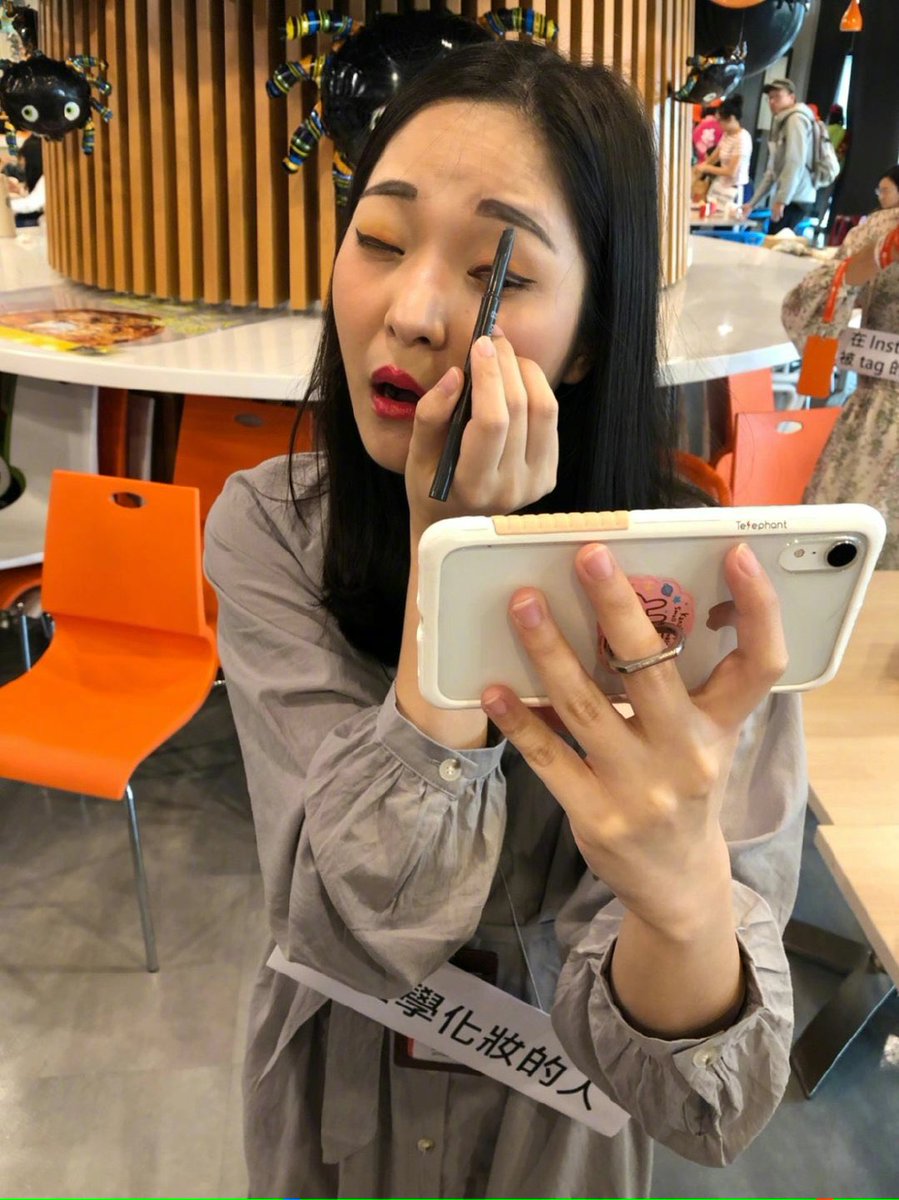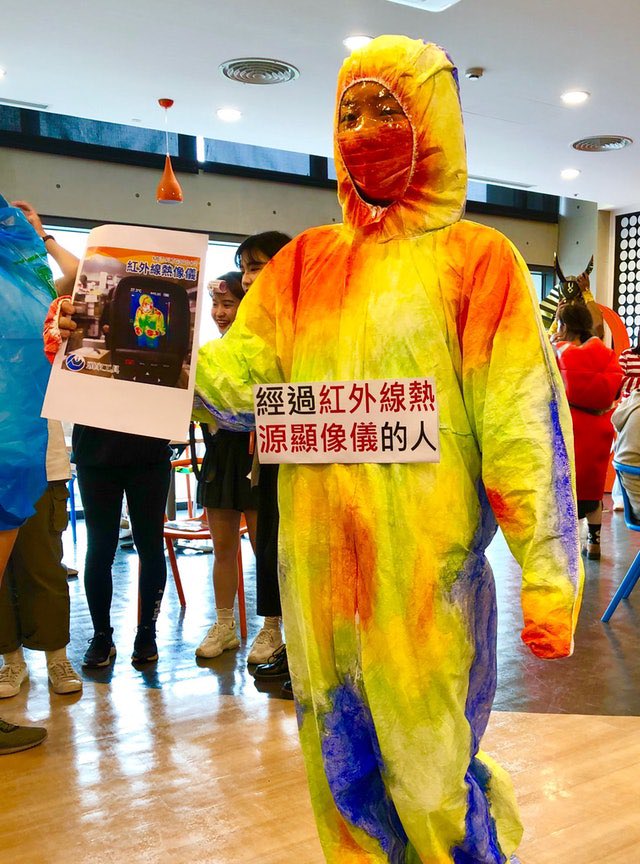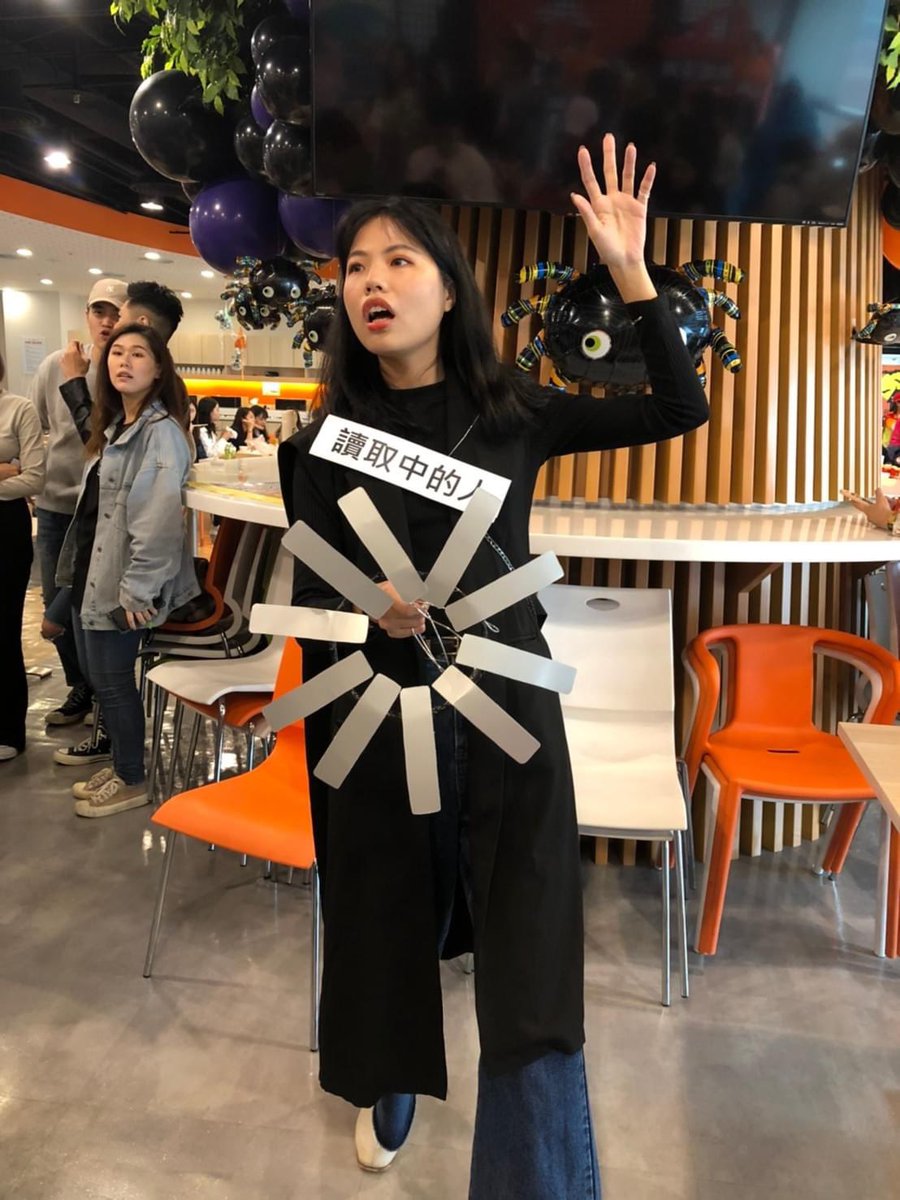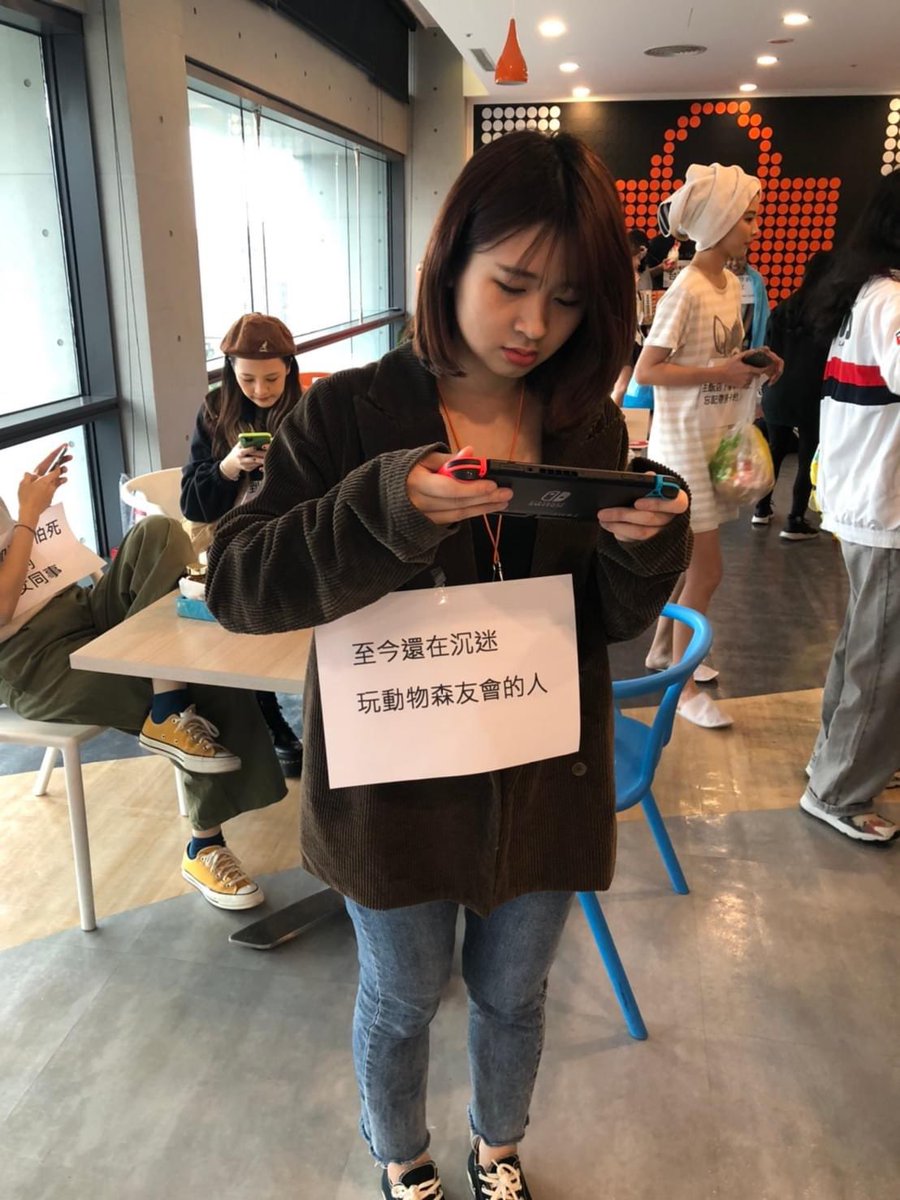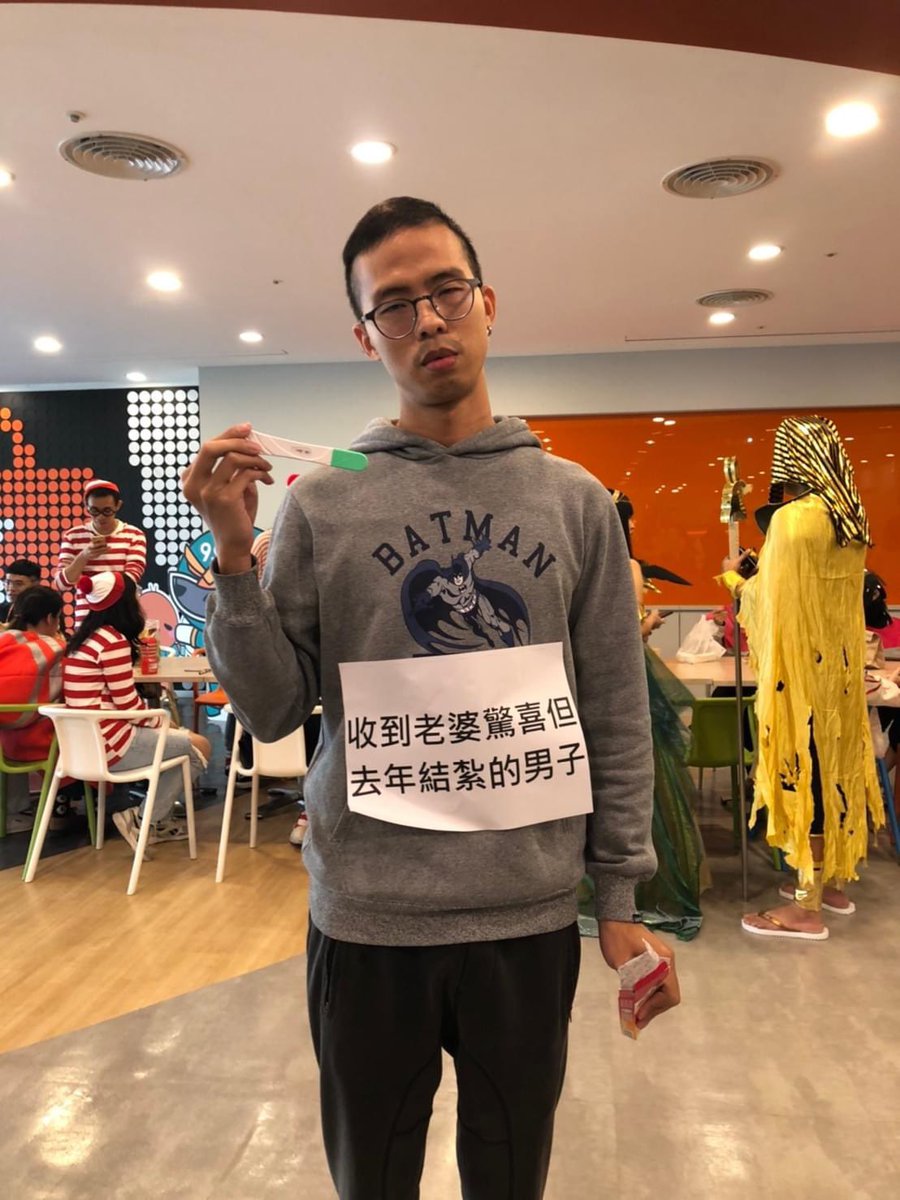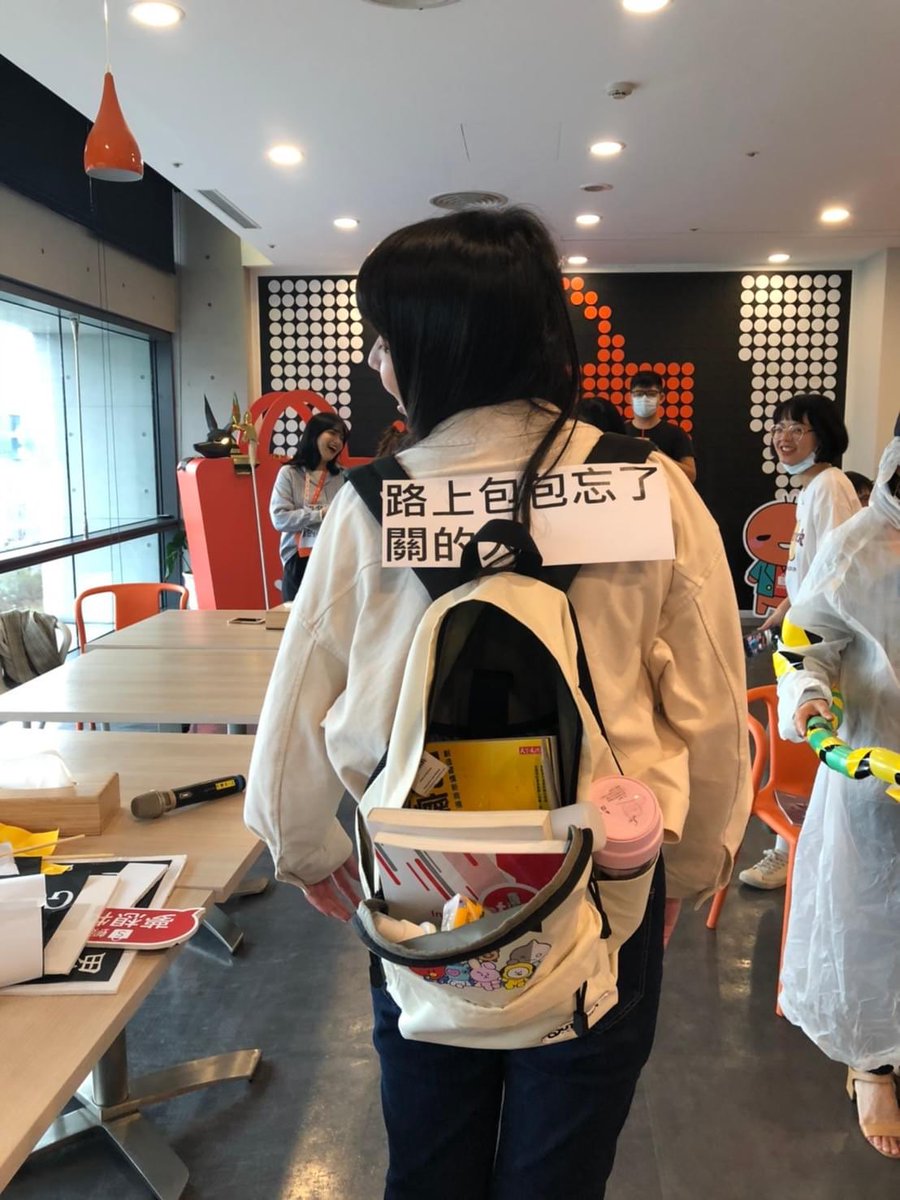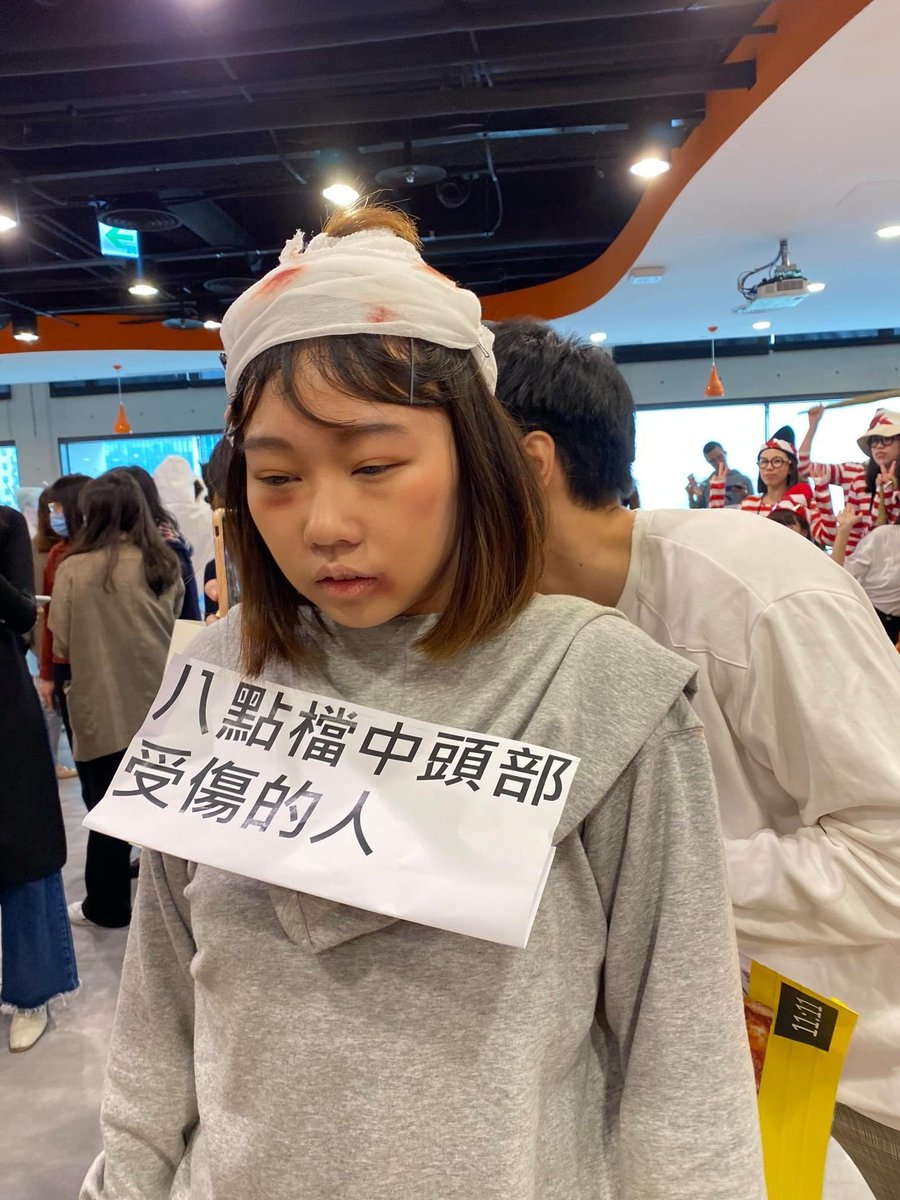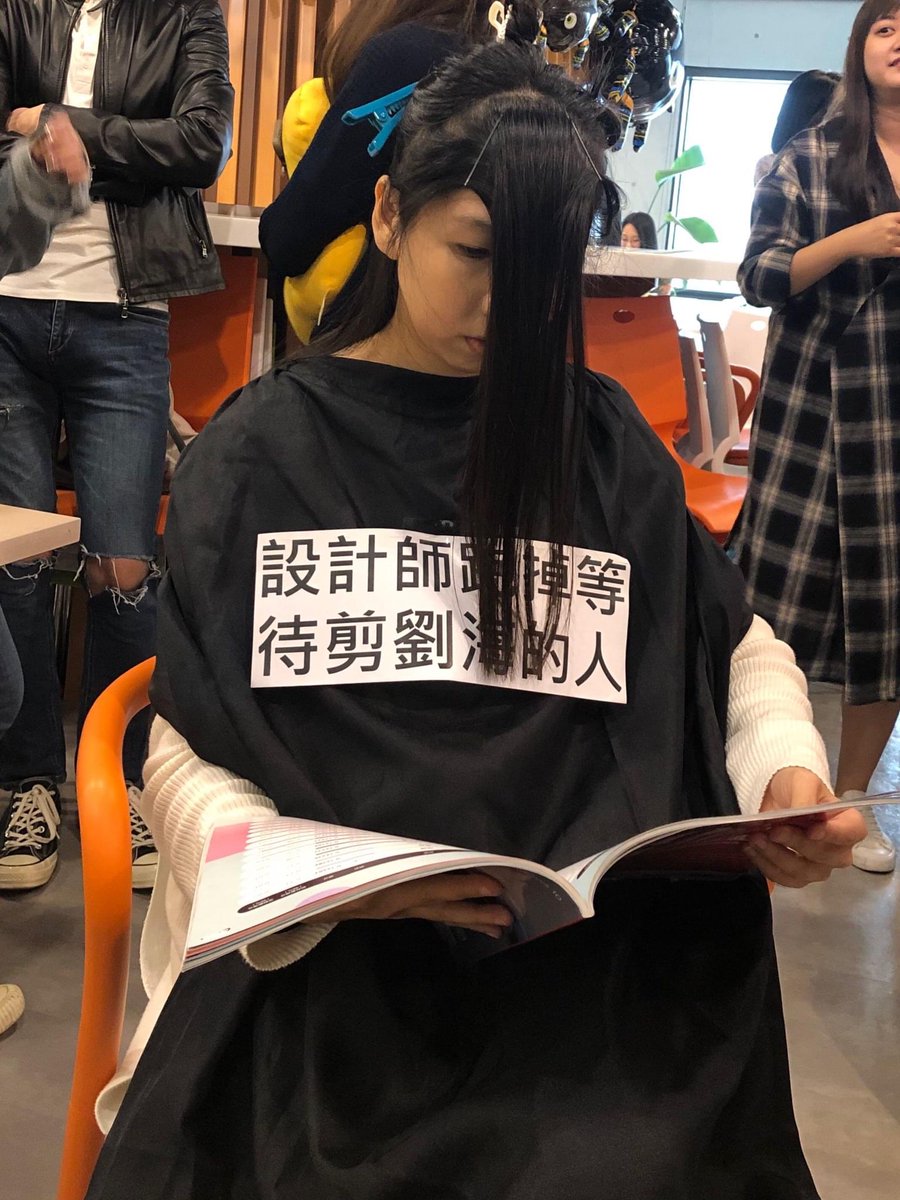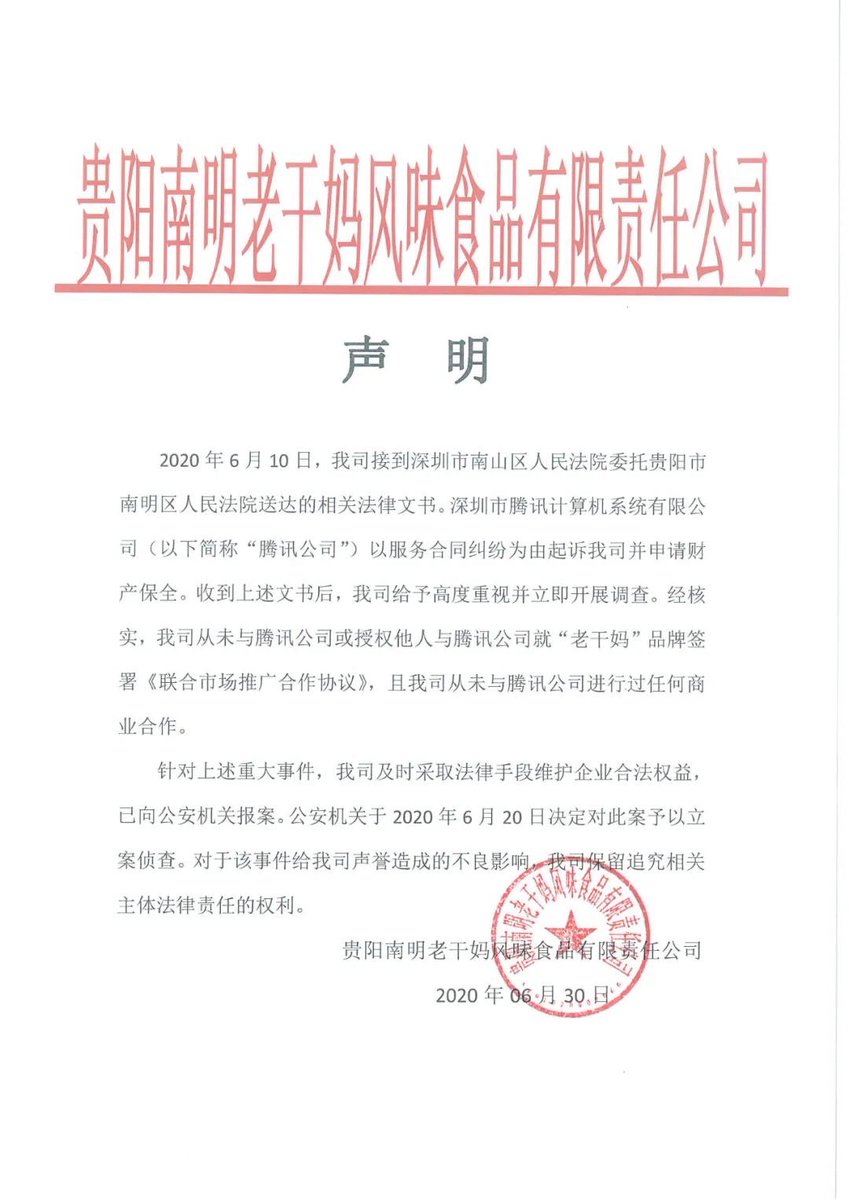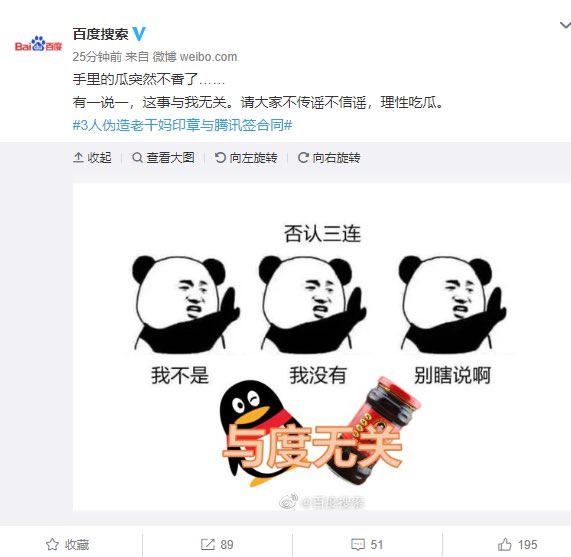
Obsessed with Taiwan’s “down-to-earth” Halloween party, where you ONLY dress up as normal people in everyday situations. This is “the woman looking for a seat at food court”: 
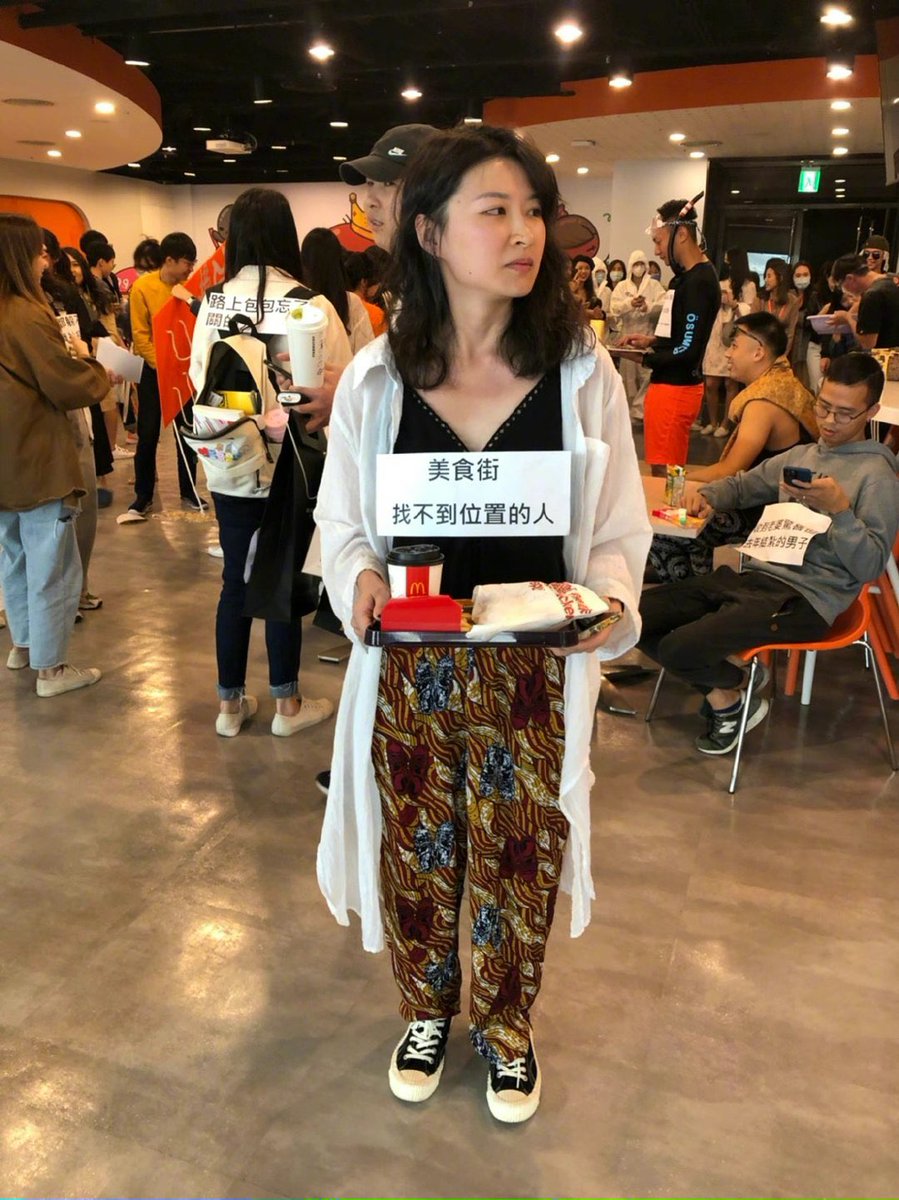
This idea is originally from Japan “地味ハロウィン “. Here are more looks of you’re interested. h/t @krishraghav
https://twitter.com/mulboyne/status/1058571909699317760
I have nothing to promote, but people in Taiwan only get to have this much fun because the country has reported 200 days with ZERO new coronavirus cases. WEAR A MASK, and VOTE! washingtonpost.com/world/2020/10/…
• • •
Missing some Tweet in this thread? You can try to
force a refresh

